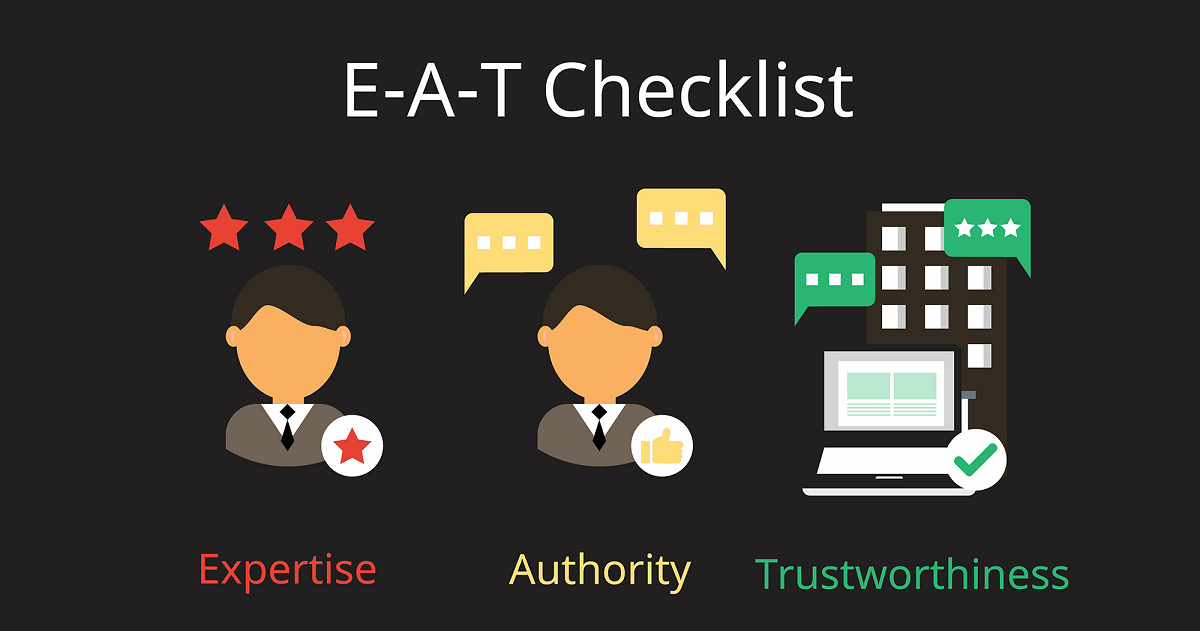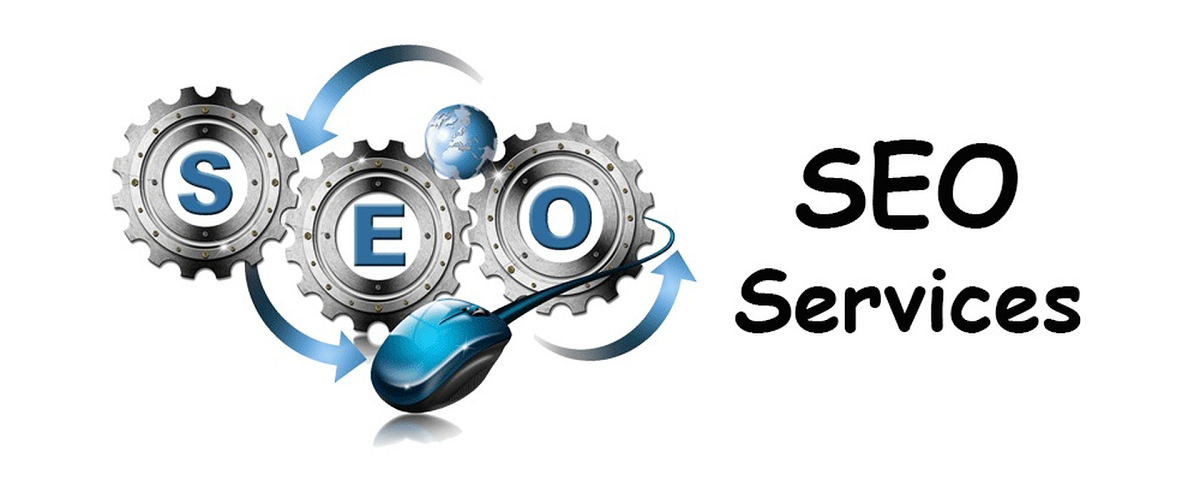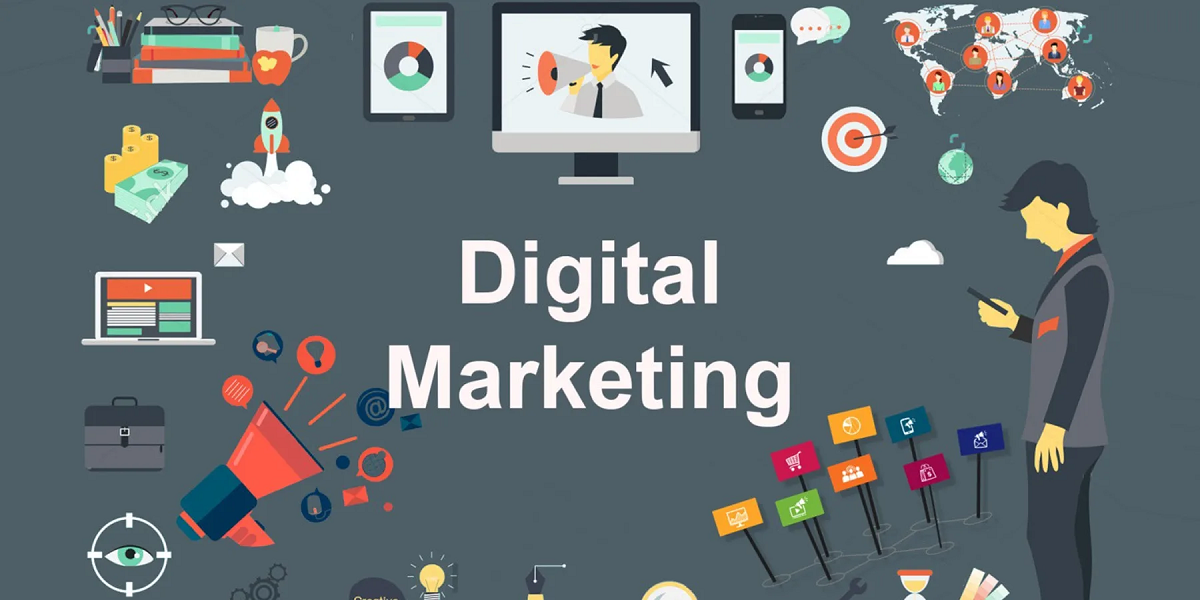BLOG
The ROI of Digital Marketing Investments

Digital marketing has become an indispensable tool for businesses striving to thrive in today's competitive landscape. As companies allocate increasing resources to their digital marketing efforts, the question arises: what is the return on investment (ROI) of these expenditures? In this blog post, we'll delve into the tangible benefits and potential pitfalls of digital marketing investments. From boosting brand visibility to driving sales, understanding the ROI of digital marketing is crucial for informed decision-making in the modern business world.
The Evolution of Digital Marketing
Digital marketing has undergone a remarkable evolution, transitioning from simple banner ads to sophisticated, data-driven campaigns. From the early days of email marketing to the rise of social media platforms and search engine optimization (SEO), businesses have continually adapted to new technologies and consumer behaviors.
Today, the landscape includes advanced targeting methods, AI-powered personalization, and immersive experiences like augmented reality. Understanding this evolution is essential for crafting effective digital marketing strategies that resonate with modern audiences and drive meaningful results.
Importance of Digital Marketing in Today's Business Environment
In today's hyper-connected world, digital marketing is no longer optional—it's essential for business success. With billions of people spending hours online each day, digital channels offer unparalleled opportunities to reach and engage target audiences. Moreover, digital marketing enables precise targeting, real-time tracking, and the ability to adapt campaigns on the fly.
Businesses that neglect digital marketing risk falling behind competitors and missing out on valuable opportunities to connect with consumers. By embracing digital strategies, companies can expand their reach, build brand awareness, and drive tangible business outcomes in a rapidly evolving marketplace.
Understanding Return on Investment (ROI)
Return on investment (ROI) is a critical metric for evaluating the effectiveness of digital marketing efforts. Essentially, ROI measures the profitability of these investments by comparing the gains generated to the costs incurred. However, calculating ROI in digital marketing can be complex due to the multitude of channels, tactics, and variables involved.
It requires careful tracking of key performance indicators (KPIs), such as conversion rates, customer acquisition costs, and lifetime value. By understanding ROI, businesses can make informed decisions about resource allocation, optimize campaign performance, and maximize the impact of their digital marketing initiatives.
Defining Digital Marketing Investments
Digital marketing investments encompass the resources allocated to various online channels and tactics with the goal of achieving specific business objectives. These investments can include spending on paid advertising, content creation, social media marketing, search engine optimization (SEO), email campaigns, and more.
Each investment is aimed at driving desired outcomes, such as increasing brand awareness, generating leads, driving website traffic, or boosting sales. By strategically allocating resources across different digital channels, businesses can effectively reach their target audience, engage with potential customers, and ultimately drive growth and profitability.
Key Metrics for Measuring Digital Marketing ROI
Measuring digital marketing ROI requires tracking a range of key metrics that indicate the effectiveness and efficiency of marketing efforts. These metrics may include conversion rates, customer acquisition cost (CAC), return on ad spend (ROAS), click-through rates (CTR), engagement metrics, and more.
By analyzing these metrics, businesses can gain insights into the performance of their campaigns, identify areas for improvement, and make data-driven decisions to optimize ROI. Additionally, advanced analytics tools and attribution models allow marketers to understand the full customer journey across multiple touchpoints, providing a comprehensive view of ROI and campaign effectiveness.
Benefits of Digital Marketing Investments
Investing in digital marketing offers a myriad of tangible benefits for businesses of all sizes and industries. Firstly, digital marketing provides unparalleled reach, allowing companies to connect with audiences across the globe in real-time. Secondly, it offers precise targeting capabilities, enabling marketers to tailor messages to specific demographics, interests, and behaviors.
Additionally, digital channels provide extensive data and analytics, allowing for continuous optimization and improvement of campaigns. Furthermore, digital marketing often boasts lower costs and higher returns compared to traditional advertising methods. Overall, the tangible benefits of digital marketing investments include increased brand visibility, lead generation, customer engagement, and ultimately, revenue growth.
Enhancing Brand Visibility through Digital Channels
Digital channels offer unparalleled opportunities for enhancing brand visibility and reaching target audiences with compelling messaging and creative content. From social media platforms to search engines and display advertising networks, businesses can leverage various digital channels to increase brand awareness and visibility.
By crafting engaging content, optimizing for search engines, and utilizing targeted advertising, brands can ensure their presence is felt across multiple touchpoints along the customer journey. Additionally, fostering a strong online presence through consistent branding, active engagement, and community building can further elevate brand visibility and establish authority in the marketplace.
Driving Sales and Conversions: The Digital Approach
Digital marketing presents powerful tools and strategies for driving sales and conversions in today's digital-first world. Through tactics such as targeted advertising, personalized messaging, and optimized landing pages, businesses can effectively guide prospects through the sales funnel and convert them into paying customers.
Additionally, email marketing, retargeting campaigns, and promotional offers can encourage repeat purchases and increase customer lifetime value. By leveraging data and analytics to understand consumer behavior and preferences, businesses can fine-tune their digital marketing efforts to maximize sales and conversions, ultimately driving revenue growth and sustainable business success.
Cost-Effectiveness of Digital Marketing Strategies
Digital marketing strategies are often more cost-effective than traditional marketing approaches, offering businesses greater flexibility and efficiency in reaching their target audience. Unlike traditional methods such as print or broadcast advertising, digital marketing allows for precise targeting, real-time optimization, and measurable results.
With pay-per-click (PPC) advertising, for example, businesses only pay when users engage with their ads, ensuring a higher return on investment (ROI) and reduced wastage of advertising spend. Additionally, digital channels offer lower barriers to entry, making them accessible to businesses of all sizes, from startups to multinational corporations.
Analyzing Customer Engagement and Interaction
Central to the success of digital marketing efforts is the ability to analyze customer engagement and interaction across various channels and touchpoints. By tracking metrics such as click-through rates, conversion rates, time spent on site, and social media interactions, businesses can gain valuable insights into consumer behavior and preferences.
Advanced analytics tools and platforms provide deeper insights, allowing marketers to segment audiences, personalize content, and optimize campaigns for maximum effectiveness. By continuously monitoring and analyzing customer engagement metrics, businesses can refine their digital marketing strategies, enhance the customer experience, and drive long-term loyalty and satisfaction.
Maximizing ROI through Targeted Advertising
Targeted advertising is a cornerstone of digital marketing strategy, allowing businesses to reach specific audiences with tailored messages and offers. By leveraging demographic data, interests, and online behaviors, marketers can create highly relevant and personalized ads that resonate with their target market.
Whether through search engine marketing (SEM), social media advertising, or display advertising, targeted ads enable businesses to maximize their return on investment (ROI) by focusing their resources on the most promising prospects. Furthermore, retargeting campaigns can re-engage users who have previously interacted with the brand, increasing conversion rates and driving incremental sales.
Navigating Challenges in Digital Marketing Investments
While digital marketing offers numerous opportunities for businesses, it also presents its fair share of challenges and complexities. From ever-changing algorithms to ad fatigue and increasing competition, marketers must navigate a dynamic landscape to achieve their goals. Additionally, issues such as data privacy regulations, ad fraud, and platform limitations can pose significant hurdles to digital marketing success.
To overcome these challenges, businesses must stay agile, continuously adapt their strategies, and invest in technology and expertise to stay ahead of the curve. By embracing innovation and maintaining a customer-centric approach, marketers can overcome obstacles and drive meaningful results in the digital realm.
Adapting Strategies for Changing Consumer Behaviors
Consumer behaviors are constantly evolving, influenced by factors such as technological advancements, cultural shifts, and economic conditions. To remain competitive, businesses must adapt their digital marketing strategies accordingly. This involves staying attuned to consumer preferences, analyzing market trends, and being agile in response to changes.
Whether it's shifting towards mobile-first experiences, embracing influencer marketing, or prioritizing personalized content, the ability to adapt strategies to meet evolving consumer behaviors is essential for maintaining relevance and driving engagement in the digital landscape.
Leveraging Data and Analytics for ROI Optimization
Data and analytics play a pivotal role in optimizing the return on investment (ROI) of digital marketing efforts. By harnessing the power of data, businesses can gain valuable insights into customer behavior, preferences, and conversion patterns. This data-driven approach enables marketers to refine targeting strategies, allocate resources more effectively, and tailor content to resonate with specific audience segments.
Moreover, analytics tools provide real-time feedback, allowing for continuous optimization and refinement of campaigns. By leveraging data and analytics, businesses can maximize ROI and drive sustainable growth in an increasingly competitive digital marketplace.
Integrating Digital Marketing with Overall Business Goals
Effective digital marketing goes beyond individual campaigns or initiatives; it must align closely with overarching business objectives. Whether the goal is to increase brand awareness, drive sales, or enhance customer loyalty, digital marketing efforts should be integrated into the broader business strategy.
This requires collaboration across departments, clear communication of objectives, and alignment of key performance indicators (KPIs). By integrating digital marketing with overall business goals, organizations can ensure that resources are allocated efficiently, initiatives are coherent, and outcomes contribute directly to the bottom line.
Future Trends in Digital Marketing Investment Strategies
The digital marketing landscape is constantly evolving due to technological advancements, consumer behavior changes, and emerging trends. Key trends include the rise of AI and machine learning, which enable hyper-personalized targeting and predictive analytics, and the growing importance of immersive technologies like AR and VR.
Privacy regulations and consumer data protection are also influencing strategies, leading to a need for transparency, consent, and ethical data usage. Staying updated and embracing innovation can help businesses succeed in the digital landscape.
As you've delved into the realm of digital marketing ROI with us, it's evident that strategic investments in this arena can yield substantial returns for your business. At Social Cali, we're dedicated to helping businesses like yours maximize their digital marketing efforts and achieve tangible results. Whether you're looking to enhance brand visibility, drive sales, or optimize ROI, our team is here to assist you every step of the way.
For personalized guidance tailored to your business needs, contact us today at 1-415-888-9561 or email us at sales@socialcali.com. Let's elevate your digital presence and propel your business forward, starting right here in Manteca.











